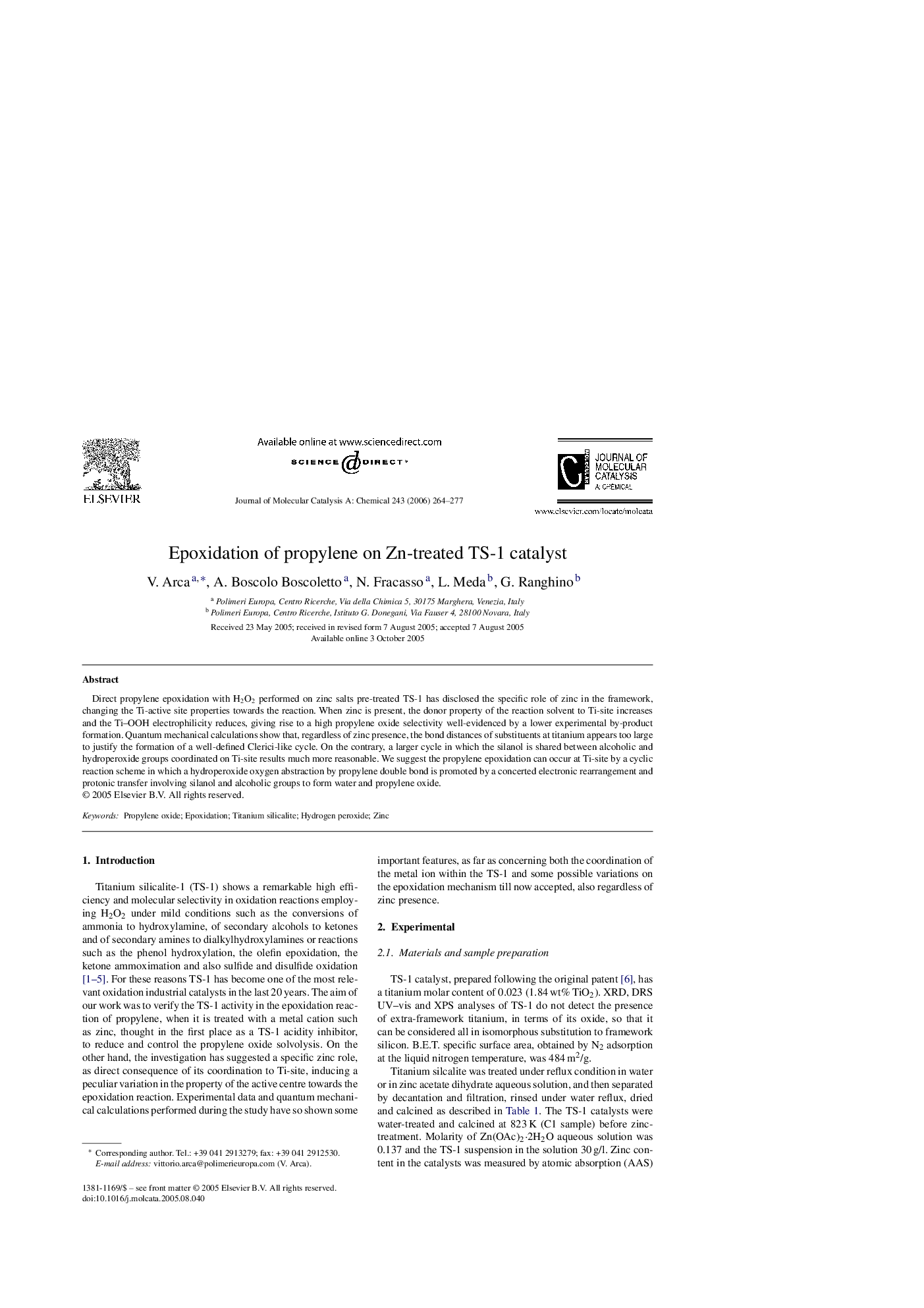| کد مقاله | کد نشریه | سال انتشار | مقاله انگلیسی | نسخه تمام متن |
|---|---|---|---|---|
| 69245 | 48534 | 2006 | 14 صفحه PDF | دانلود رایگان |

Direct propylene epoxidation with H2O2 performed on zinc salts pre-treated TS-1 has disclosed the specific role of zinc in the framework, changing the Ti-active site properties towards the reaction. When zinc is present, the donor property of the reaction solvent to Ti-site increases and the Ti–OOH electrophilicity reduces, giving rise to a high propylene oxide selectivity well-evidenced by a lower experimental by-product formation. Quantum mechanical calculations show that, regardless of zinc presence, the bond distances of substituents at titanium appears too large to justify the formation of a well-defined Clerici-like cycle. On the contrary, a larger cycle in which the silanol is shared between alcoholic and hydroperoxide groups coordinated on Ti-site results much more reasonable. We suggest the propylene epoxidation can occur at Ti-site by a cyclic reaction scheme in which a hydroperoxide oxygen abstraction by propylene double bond is promoted by a concerted electronic rearrangement and protonic transfer involving silanol and alcoholic groups to form water and propylene oxide.
Direct H2O2 propylene epoxidation reaction in alcoholic–aqueous medium on Zn-treated TS-1 catalyst has disclosed a specific zinc framework coordination that enhances the Ti-site epoxide selectivity. It has proposed a reaction cyclic intermediate in which a hydroperoxide oxygen abstraction by double bond is promoted by a concerted electronic rearrangement and protonic transfer involving a local silanol and alcoholic groups to form water and propylene oxide. Figure optionsDownload as PowerPoint slide
Journal: Journal of Molecular Catalysis A: Chemical - Volume 243, Issue 2, 16 January 2006, Pages 264–277